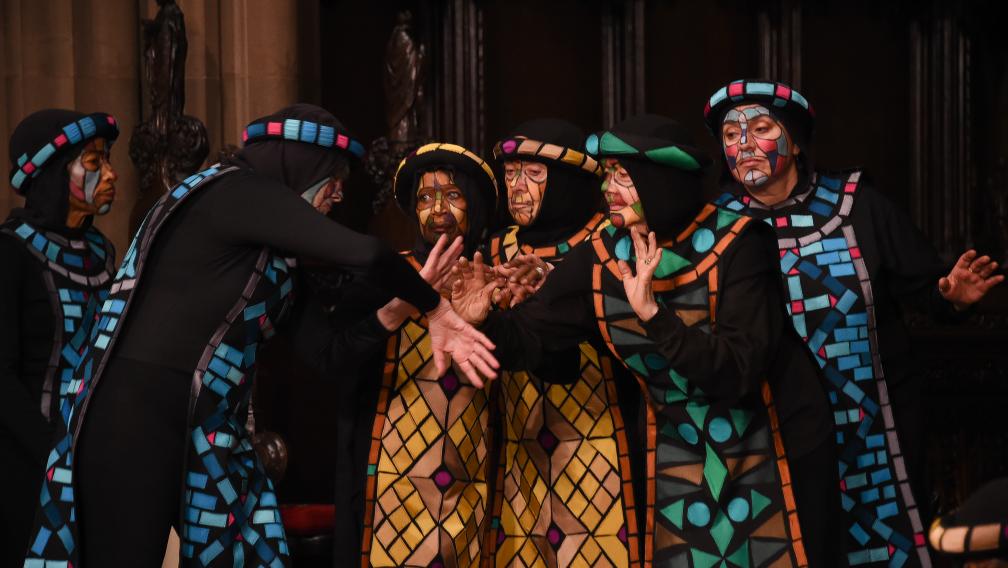Job is a biblical character whose name is at least vaguely familiar even to people who don’t read the Bible. After all, most of us have heard references to “the patience of Job.”
The character of Job also appears in the Koran. And the account of the man who is “blameless” and “upright” yet loses his children and his considerable fortune due to a wager between God and Satan continues to resonate in a world still struggling with the question of why bad things happen to good people.
“I had always wanted to come to terms with the Book of Job, which I disliked; the idea of a God who would allow someone to be tortured and others killed to prove a point and win a wager,” said Marilyn Green, director and one of the founders of Trinity Movement Choir, which is part of Trinity's Congregational Arts Committee.
It was that unease with the biblical story that led Green to propose a treatment of Job in the style of Japanese dance called butoh. The result was The Book of Job, debuted by Trinity Movement Choir in Trinity Church in April 2016. The Book of Job will be performed again by an even larger cast of dancers, online, on Sunday, April 3 at 1pm as the conclusion of a five-week Lenten study in Discovery, Trinity’s adult education program. Register here for the event.
Trinity parishioner Gerald Baugh, who plays the part of Job, says his performance comes with deep reflection.
“Having the title or lead role carries a sense of great responsibility. I ask myself: am I doing this role and character justice through my presentation?
“This is a story that everyone is somewhat familiar with, so can I do it in a way where someone who watches it feels the pain and agony of loss as described in the story?”
The 2016 performance at Trinity Church featured a libretto written by Green and Alan Baxter, using the King James Version of the Bible. Members of the Choir of Trinity Wall Street sang the libretto, improvising in the moment. That recording provides the soundtrack for the updated performance, a “danced” oratorio because, in Green’s words, “the music and the dance are equal.”
In scripture, the Book of Job is lengthy: 42 chapters divided into five parts, with Job enduring much suffering and navigating a complicated relationship with God before Job’s “restoration” finally comes.
“Does the sense of loss, agony and hurt come through?” Gerald Baugh responded when asked what he hopes to convey to the audience.
Despite the loss and agony is the sense of commitment to God felt, does Job rightly portray his relationship to his creator?
Gerald Baugh, Trinity parishioner
For Marilyn Green, whose struggle with the biblical story gave birth to The Book of Job, it was art that offered some hope for insight into both the reality and the randomness of human suffering.
“Even as a teaching story about loyalty and steadfastness, it didn’t really fly for me,” Green said.
“[But] dance often allows me to reach below logic and emotion to a deep place where I can find new understanding. The dancers have dug deep in dancing Job, either in their own experiences or in their ideas and beliefs.”
Including Gerald Baugh in the title role.
“I have had my own Job story since moving to New York. I have dealt with a lot of loss and I am now coming to a better place.
“This role at this time represents a most interesting way to close this chapter of my life.”
As she initially hoped, Marilyn Green’s seven-year-long period of wrestling with theology in the context of art has now brought resolution.
“I was reconciled with Job's story through dance,” Green said.
“Job's conclusion that the actual presence of the Divine is so overwhelming and beyond human challenge or comprehension rings absolutely true to me, in terms of my own experience.
“So I was right with Job in the end.”



